Related Research Articles
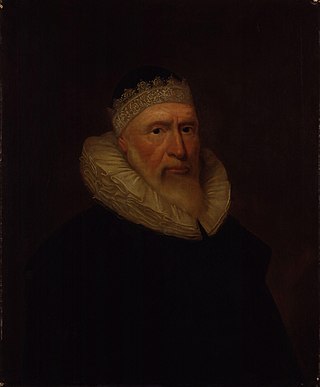
Sir Julius Caesar was an English lawyer, judge and politician who sat in the House of Commons at various times between 1589 and 1622. He was also known as Julius Adelmare.

Sir Nicholas Hyde was Lord Chief Justice of England.

Anne Conway was an English philosopher of the Enlightenment, whose work was in the tradition of the Cambridge Platonists. Conway's thought is a deeply original form of rationalist philosophy, with hallmarks of gynocentric concerns and patterns that lead some to think of it as unique among seventeenth-century systems.Conways work was an influence on Gottfried Leibniz, and Hugh Trevor-Roper called her "England's greatest female philosopher."
The Admiral's Men was a playing company or troupe of actors in the Elizabethan and Stuart eras. It is generally considered the second most important acting troupe of English Renaissance theatre.

Sir Hugh Myddelton, 1st Baronet was a Welsh clothmaker, entrepreneur, mine-owner, goldsmith, banker and self-taught engineer. The spelling of his name is inconsistently reproduced, but Myddelton appears to be the earliest, and most consistently used in place names associated with him.
Edward Conway, 1st Viscount Conway PC was an English soldier and statesman. He was the son and heir of Sir John Conway of Arrow, and his wife Ellen or Eleanor, daughter of Sir Fulke Greville of Beauchamp's Court, Warwickshire.

Elizabeth Finch, née Heneage, 1st Countess of Winchilsea was an English peeress.
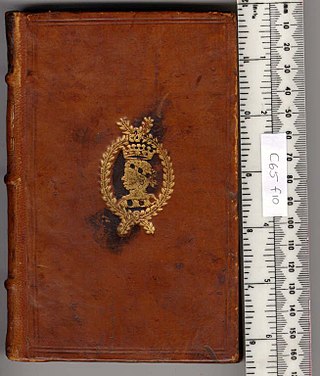
The Rt Hon. Edward Conway, 2nd Viscount Conway, PC, was an English politician, military commander, bibliophile and peer.
Events from the year 1679 in England.
Events from the year 1677 in England.

Sir Heneage Finch was an English nobleman, lawyer, Member of Parliament, and politician who sat in the House of Commons at various times between 1607 and 1626. He was Speaker of the English House of Commons in 1626.
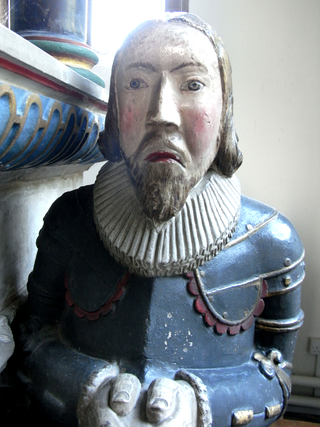
Sir Francis Popham (1573–1644) of Wellington, Somerset, was an English soldier and landowner who was elected a Member of Parliament nine times, namely for Somerset (1597), Wiltshire (1604), Marlborough (1614), Great Bedwin (1621), Chippenham 1624, 1625, 1626, 1628–29), and for Minehead (1640–1644).
Henry Hyde was an English lawyer and member of Parliament. He was the father of Edward Hyde, 1st Earl of Clarendon (1609–1674), and thus was great-grandfather of two British monarchs, Queen Mary II and Queen Anne. He lived at Dinton and later at Purton, both in Wiltshire.
There have been four baronetcies created for persons with the surname Bennet, two in the Baronetage of England and two in the Baronetage of Nova Scotia. All four creations are extinct.
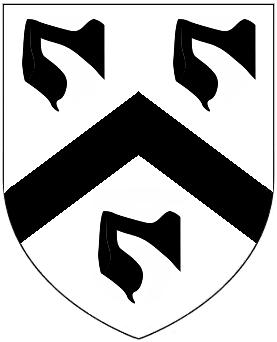
Sir Thomas Mansell, 1st Baronet was a Welsh politician who sat in the House of Commons at various times between 1597 and 1614.
Sir William Killigrew of Hanworth, Middlesex, was a courtier to Queen Elizabeth I and to her successor King James I, whom he served as Groom of the Privy Chamber. He served as a member of parliament at various times between 1571 and 1614 and was Chamberlain of the Exchequer between 1605 and 1608. Several of his descendants were also royal courtiers and many were buried in Westminster Abbey.
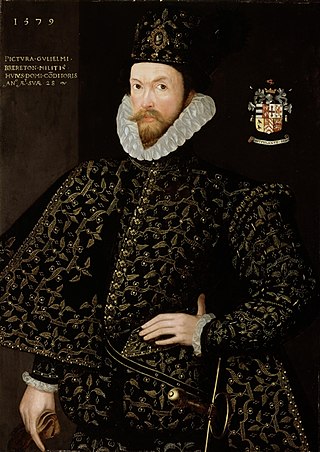
William Brereton, 1st Baron Brereton was an English politician who sat in the House of Commons at various times between 1597 and 1622. He was created a peer in the Peerage of Ireland in 1624 as Baron Brereton.
Sir John Shurley was an English politician who sat in the House of Commons in 1625.